2025 Careers Survey
From job satisfaction to personal ambitions to the looming gamechanger that is AI, the ICAS careers survey shows a profession that is adapting well to a working world of constant flux

2025 Careers Survey
From job satisfaction to personal ambitions to the looming gamechanger that is AI, the ICAS careers survey shows a profession that is adapting well to a working world of constant flux

The results are in. We surveyed ICAS members in February and March to find out how they feel about their careers. We had well over 1,000 responses (1,131 to be precise), with members revealing what they consider to be the biggest issues they face, their level of job satisfaction, their ways of working, the skills they want to develop, their professional priorities and the impact of technology on their working lives.
The last time we carried out this survey was in 2023. We kept the vast majority of the questions the same so we could measure like for like, and to see what, if anything, has changed since then.
It would have been remiss, however, not to include AI in several questions for 2025. The fact that data, analytics and AI is ranked as the single most important issue for CAs – by some distance – tells its own story. But as the results show, rather than fearing the march of technology, CAs are keen to embrace it, with just 3% of respondents predicting that technology will replace them.
Another new addition to this survey was to look at salary and gender. Our findings point to significant gaps between men’s and women’s earnings. However, we must stress those figures come with a number of major caveats, highlighted below those results (see “Average hours worked per week vs self-reported salary vs gender”), and should be viewed as a starting point for further discussion and analysis, not as proof of the gender pay gap.
Yet, given CAs are experiencing significant changes to the way they work, even down to whether they work from home or in the office, they are a surprisingly consistent cohort. Levels of satisfaction with career progress to date, for example, are virtually identical to 2023 – 88% in 2023 versus 87% in 2025.
How does that measure against other professions? Well, the most recent CIPD Good Work Index, published in 2024, revealed 70% of people in the UK said they were satisfied with their job. The respondents to our survey do earn significantly more than the average Briton (the UK median gross full-time wage is £37,430). Yet, when we drill down further there are concerns around long hours and overwork due to staff shortages.
Here we publish some key highlights of this extensive survey. Our report also concludes with expert analysis from Mark Lewis, Managing Director of finance recruitment specialist, Rutherford Cross.
For best display, please view the graphs in full screen.
The results are in. We surveyed ICAS members in February and March to find out how they feel about their career. We had well over 1,000 responses (1,131 to be precise), with members revealing what they consider to be the biggest issues they face, their level of job satisfaction, ways of working, the skills they want to develop, their professional priorities and the impact of technology on their working lives.
The last time we carried out this survey was in 2023. We kept the vast majority of the questions the same so we could measure like for like, and to see what, if anything, has changed since then.
It would have been remiss, however, not to include AI in several questions for 2025. The fact that data, analytics and AI is ranked as the single most important issue for CAs – by some distance – tells its own story. But as the results show, rather than fearing the march of technology, CAs are keen to embrace it, with just 3% of respondents predicting that technology will replace them.
Another new addition to this survey was to look at salary and gender. Our findings point to significant gaps between men’s and women’s earnings. However, we must stress those figures come with a number of major caveats, highlighted below those results (see “Average hours worked per week vs self-reported salary vs gender”), and should be viewed as a starting point for further discussion and analysis, not as proof of the gender pay gap.
Yet, given CAs are experiencing significant changes to the way they work, even down to whether they work from home or in the office, they are a surprisingly consistent cohort. Levels of satisfaction with career progress to date, for example, are virtually identical to 2023 – 88% in 2023 versus 87% in 2025.
How does that measure against other professions? Well, the most recent CIPD Good Work Index, published in 2024, revealed 70% of people in the UK said they were satisfied with their job. The respondents to our survey do earn significantly more than the average Briton (the UK median gross full-time wage is £37,430). Yet, when we drill down a bit further there are concerns around long hours and overwork due to staff shortages.
Here we publish some key highlights of this extensive survey. Our report also concludes with expert analysis from Mark Lewis, Managing Director of finance recruitment specialist, Rutherford Cross.
For best display, please turn mobile to landscape.
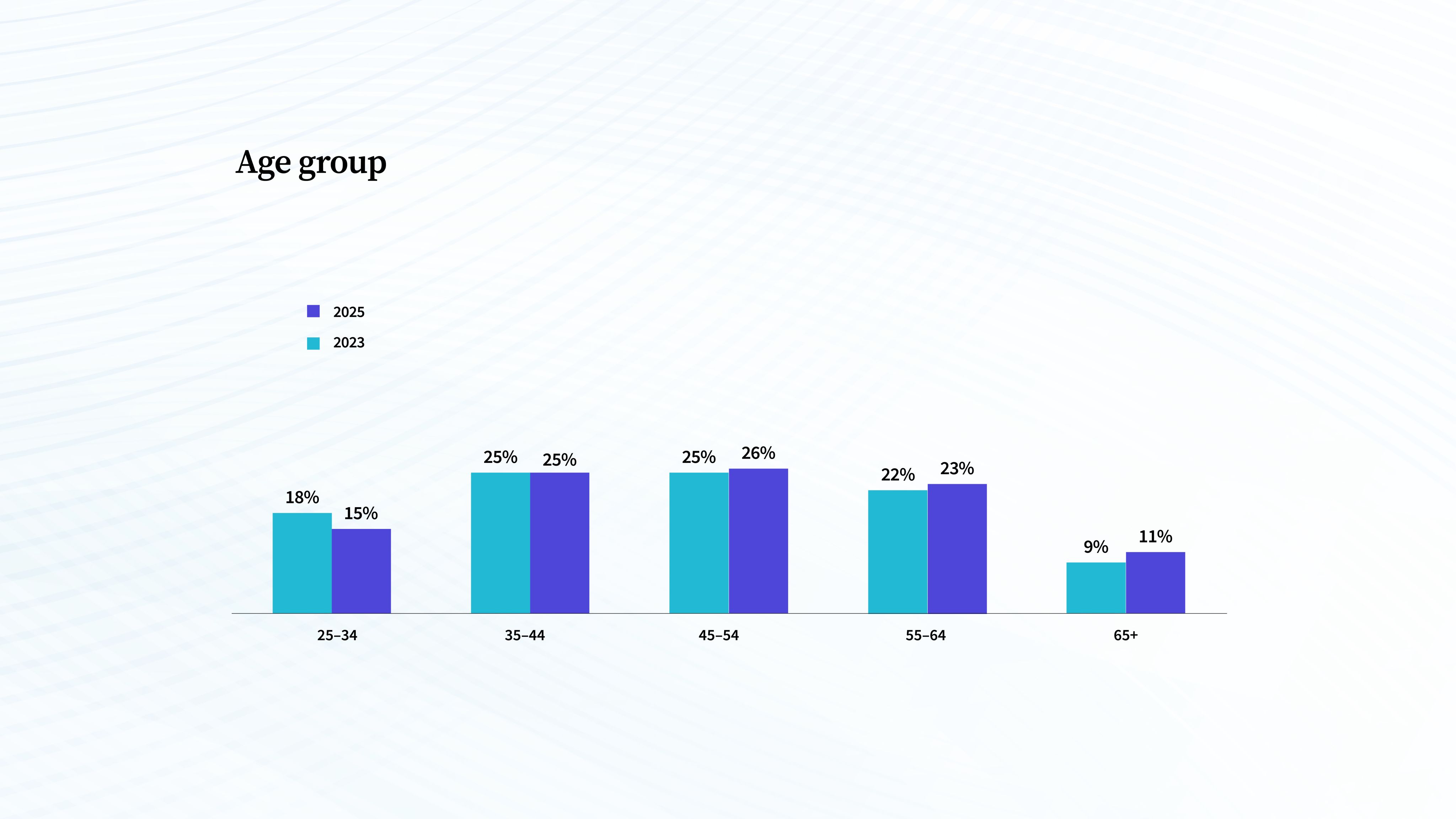
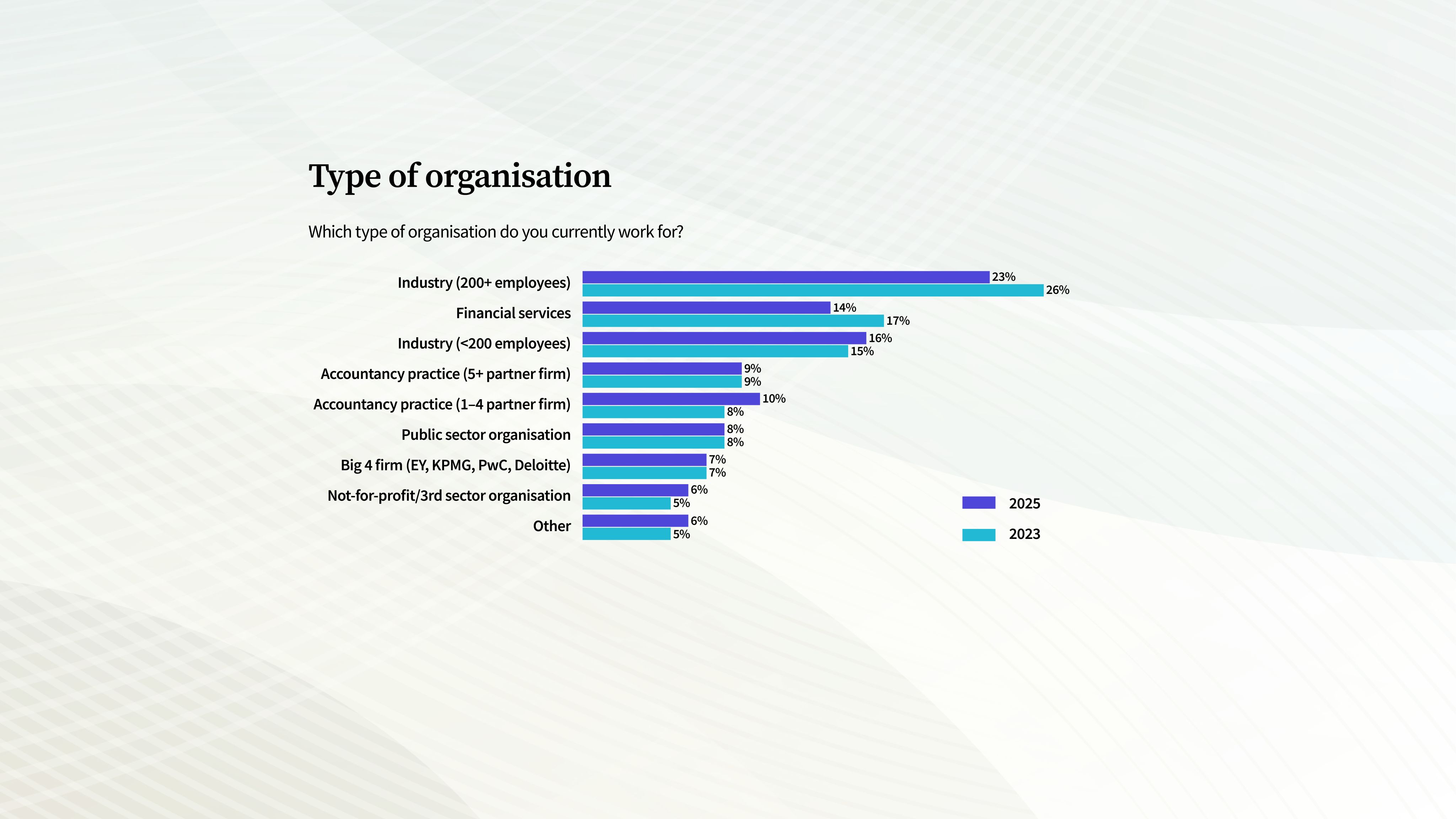
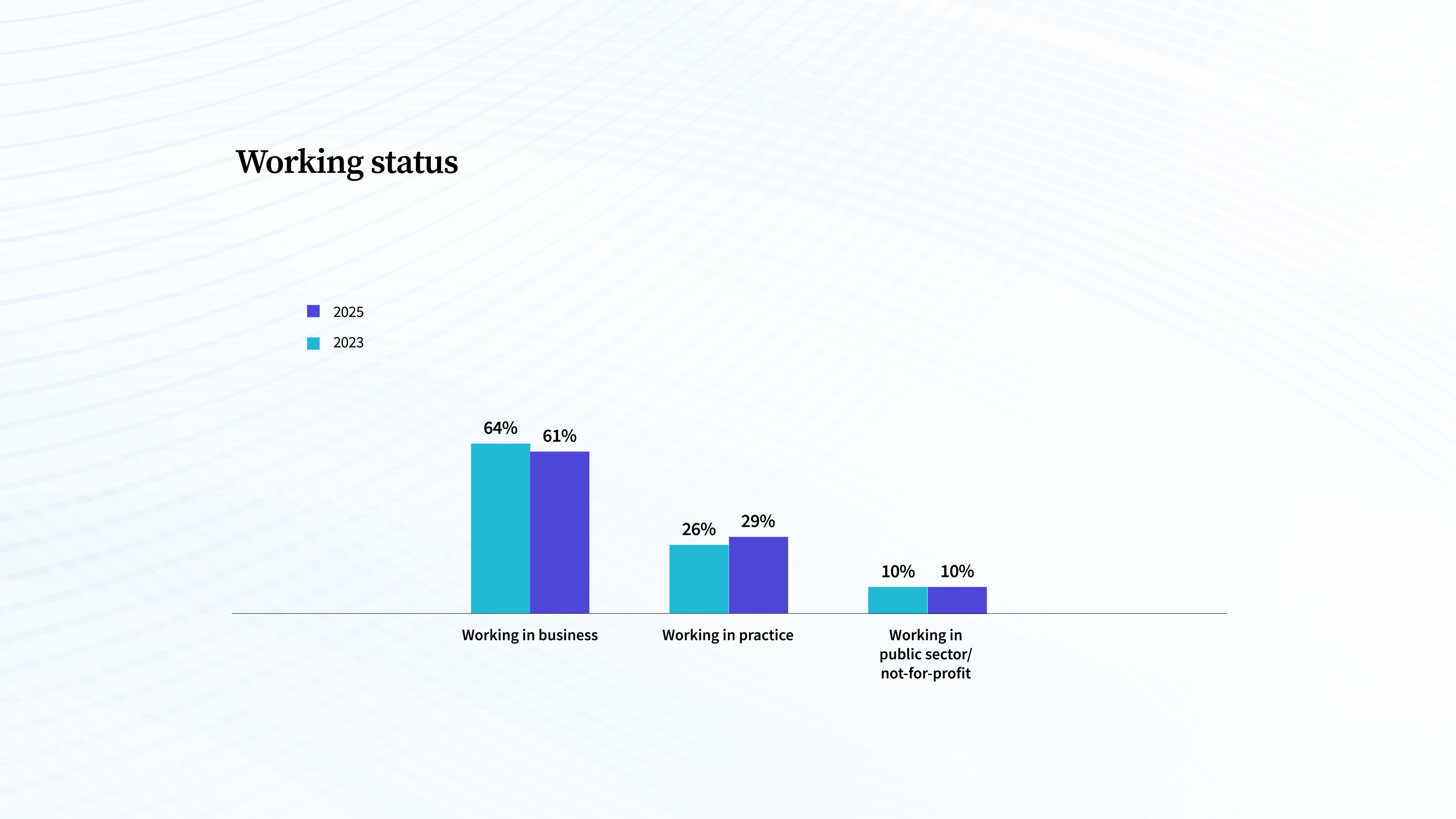
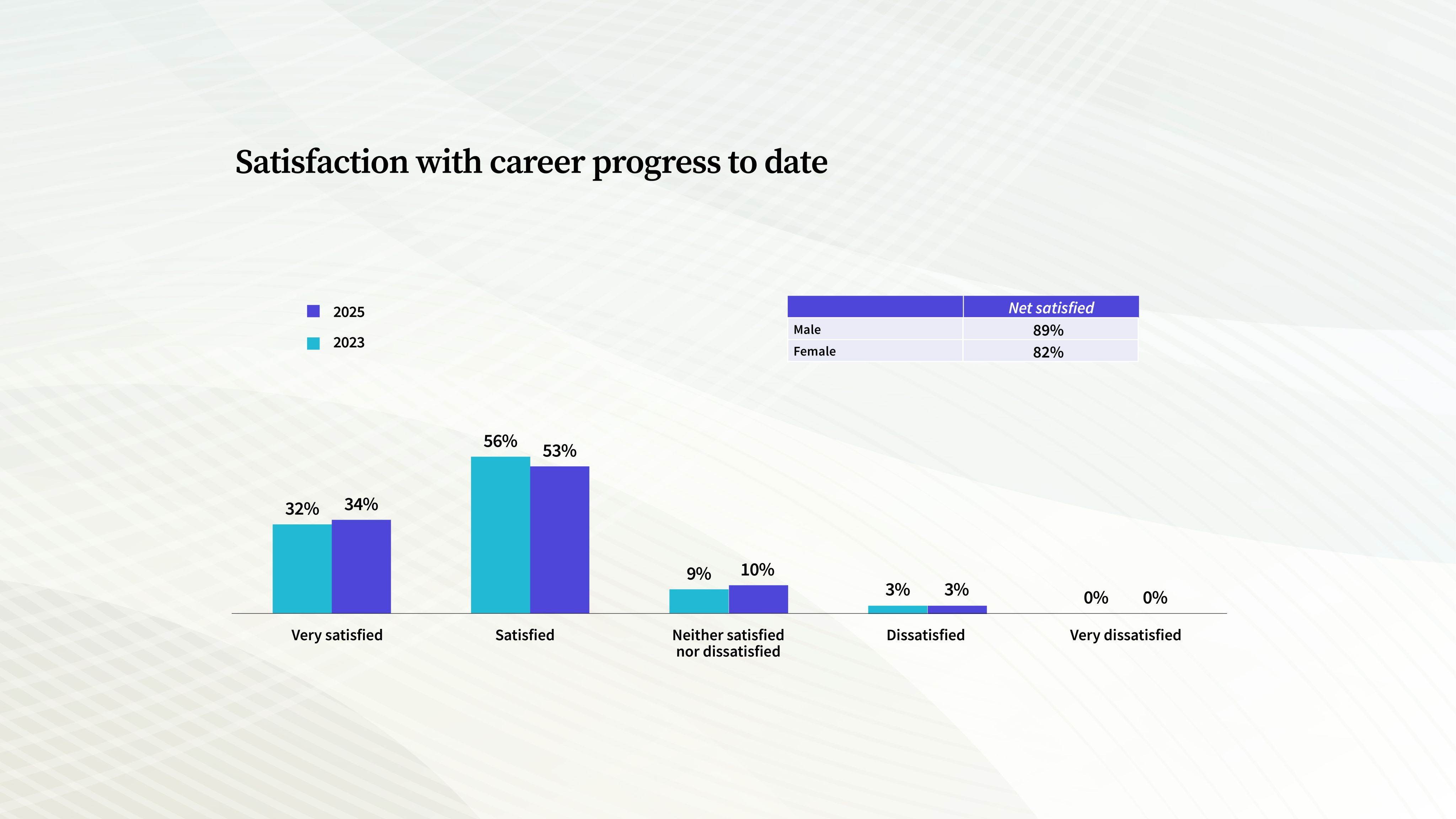
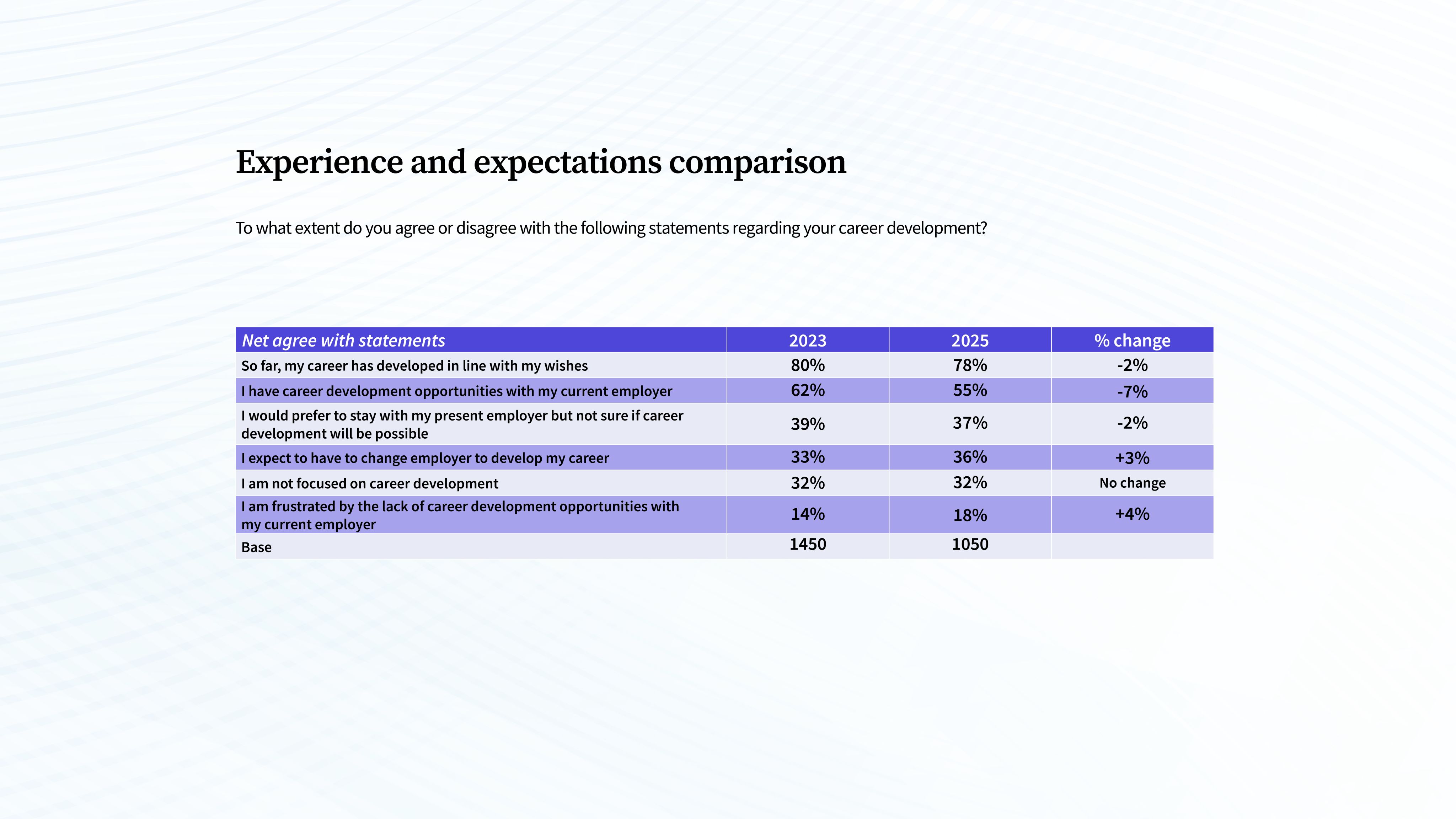
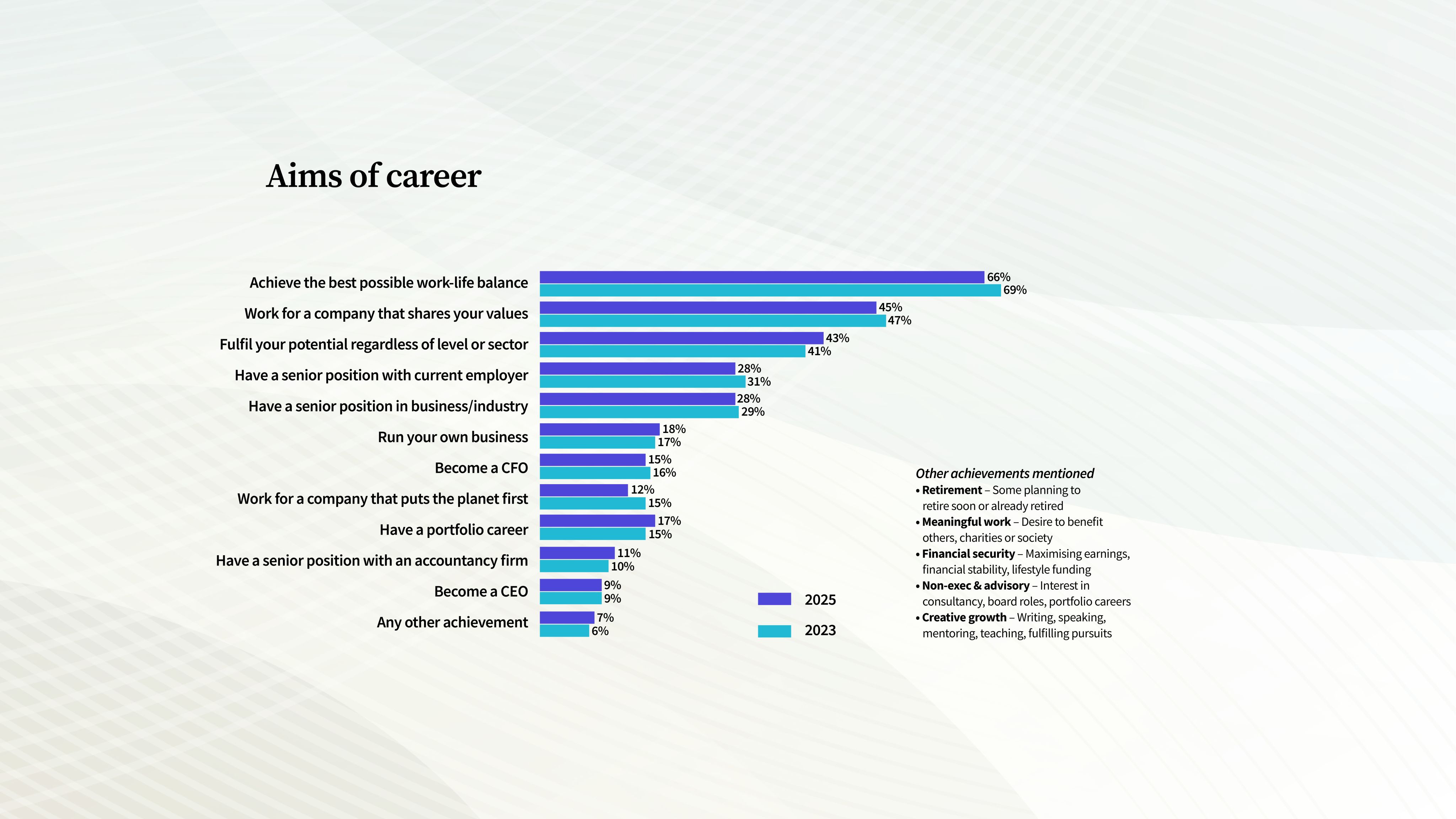
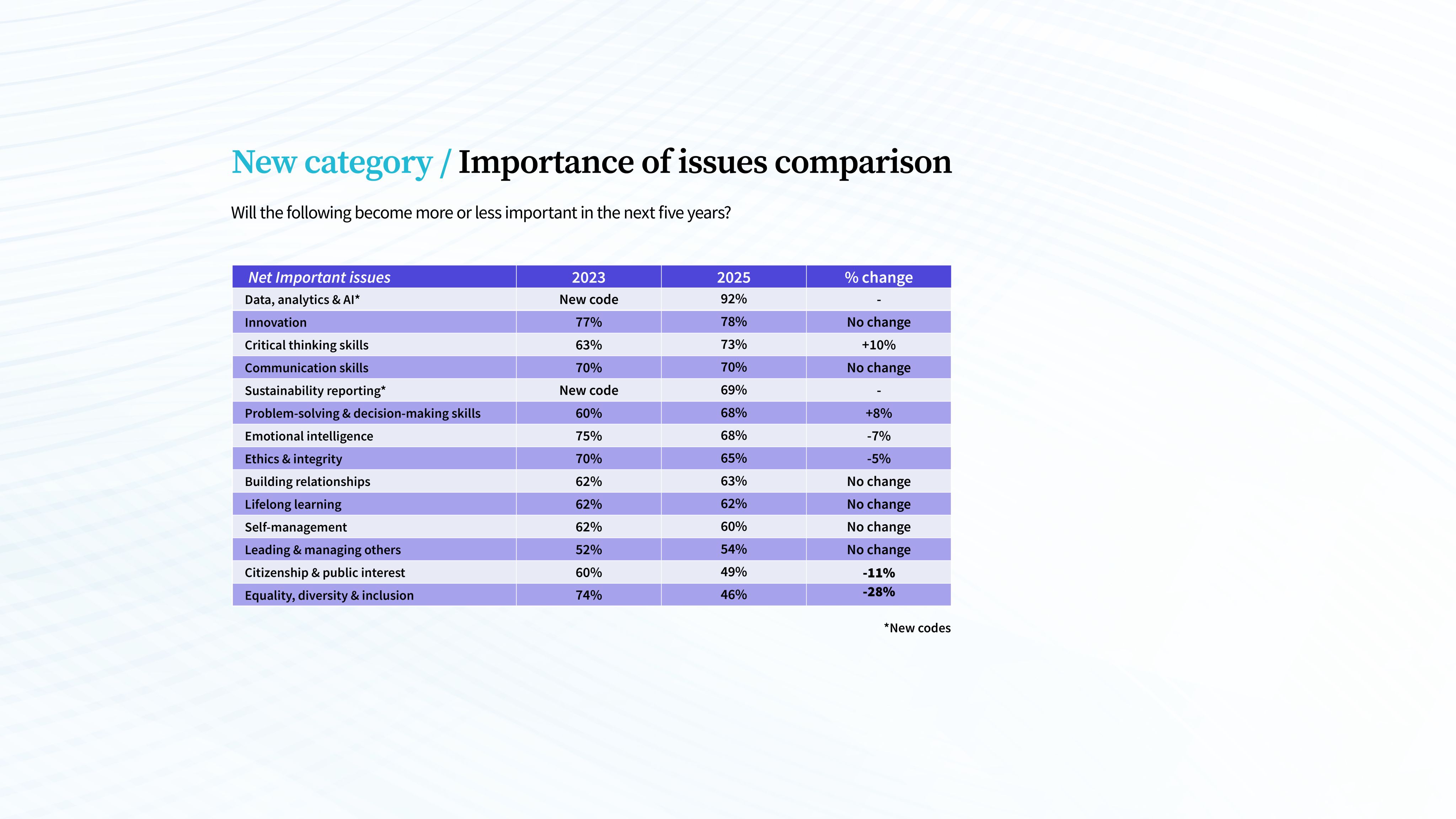
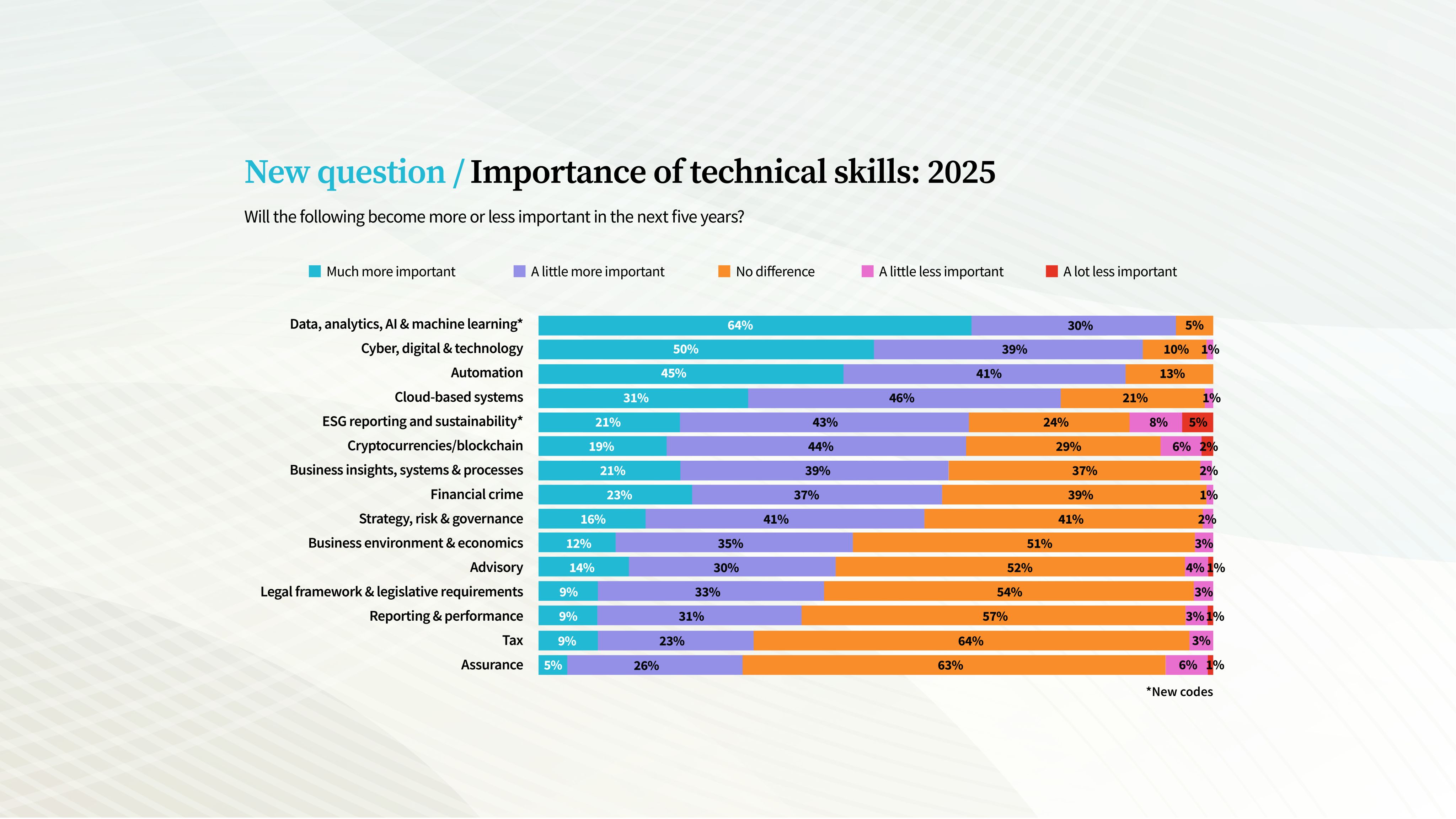
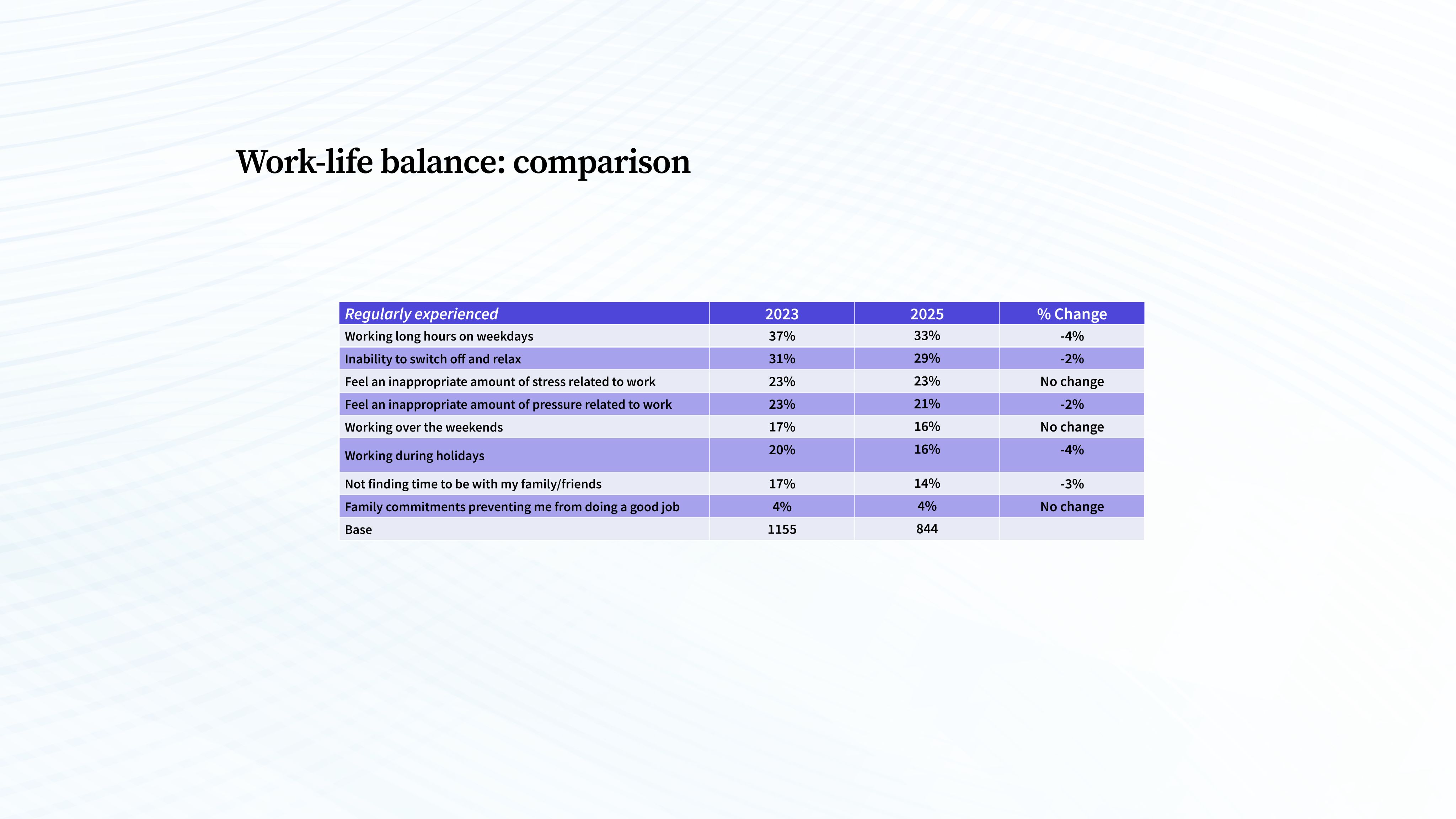
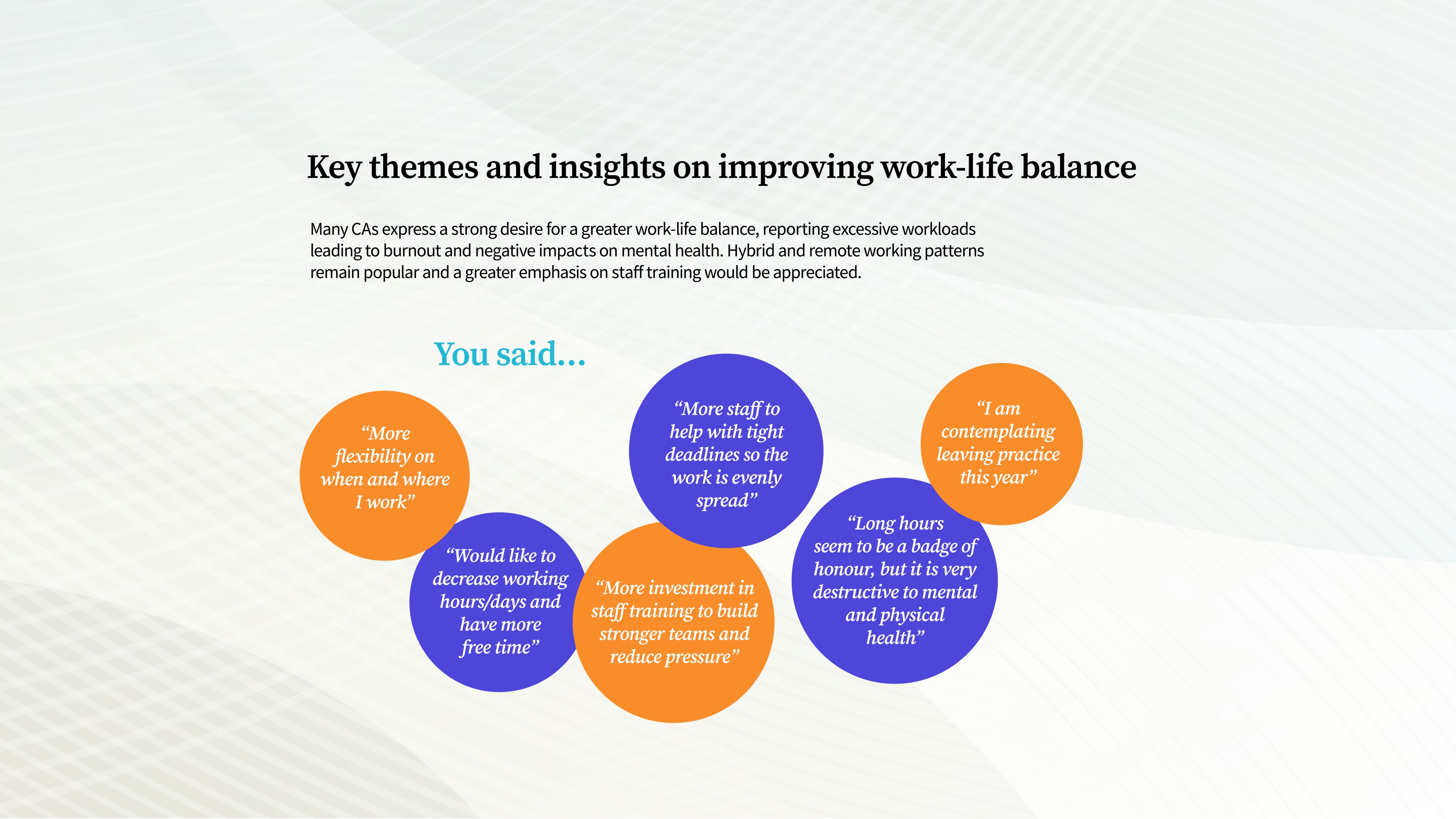
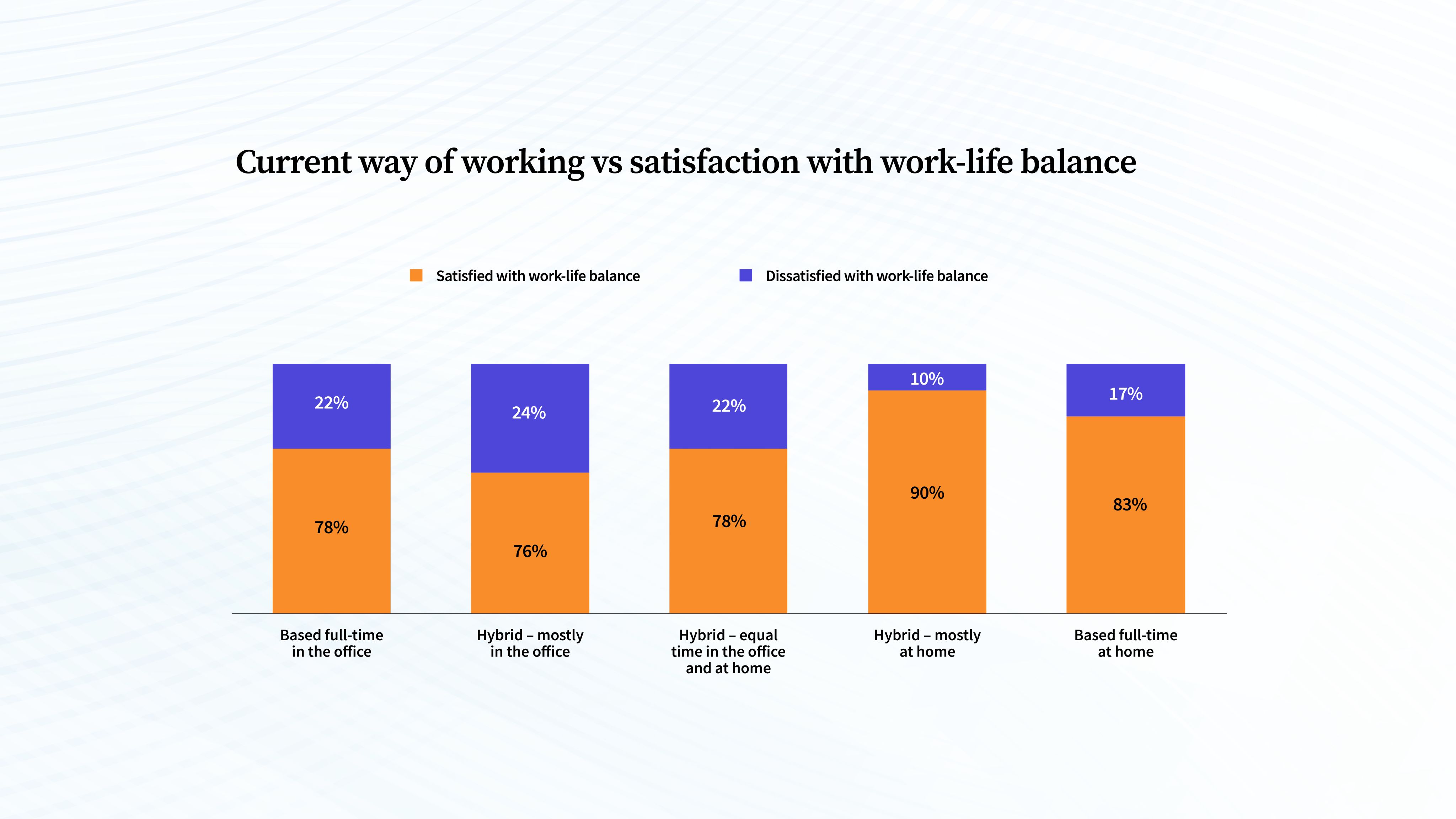
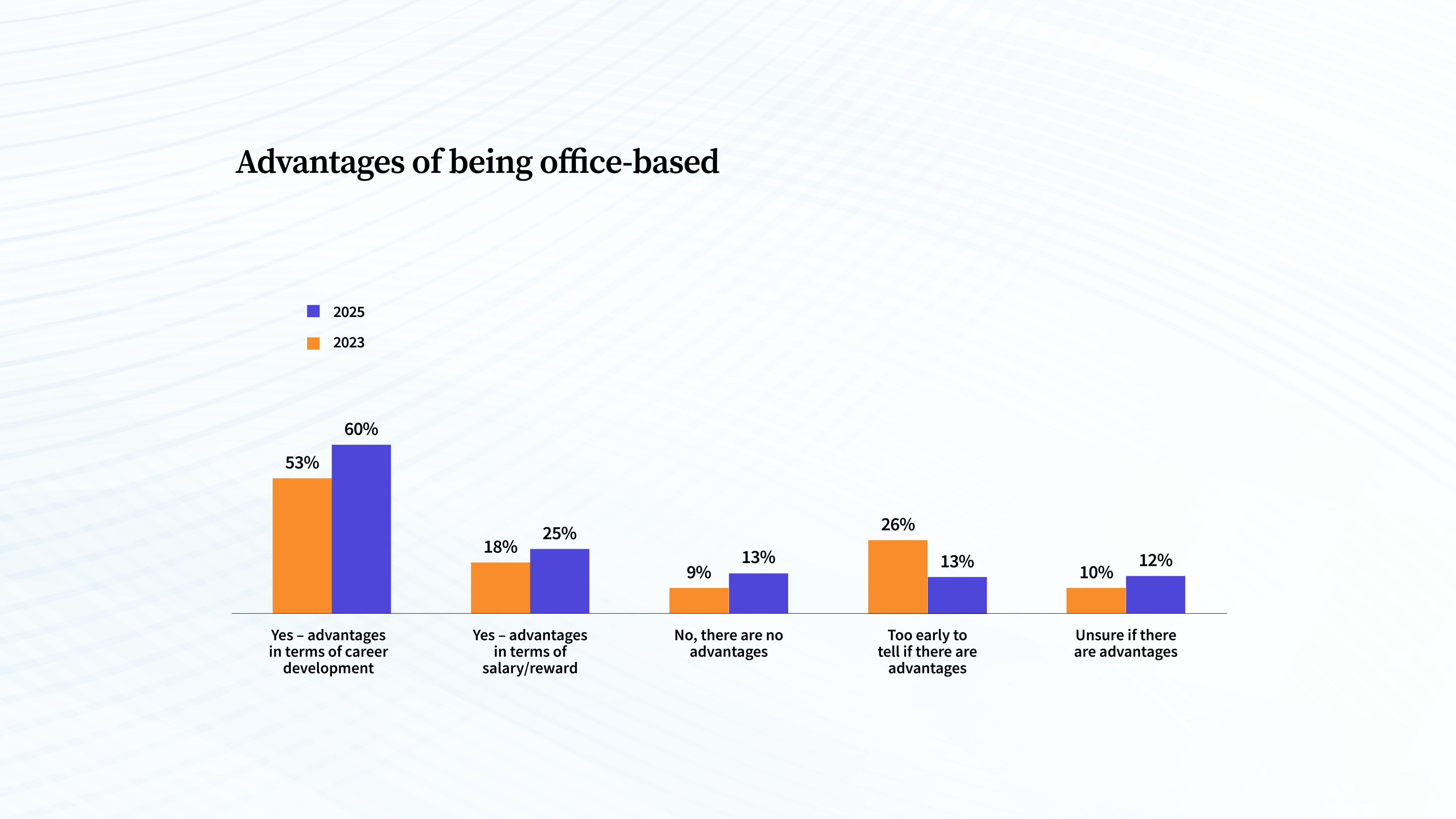
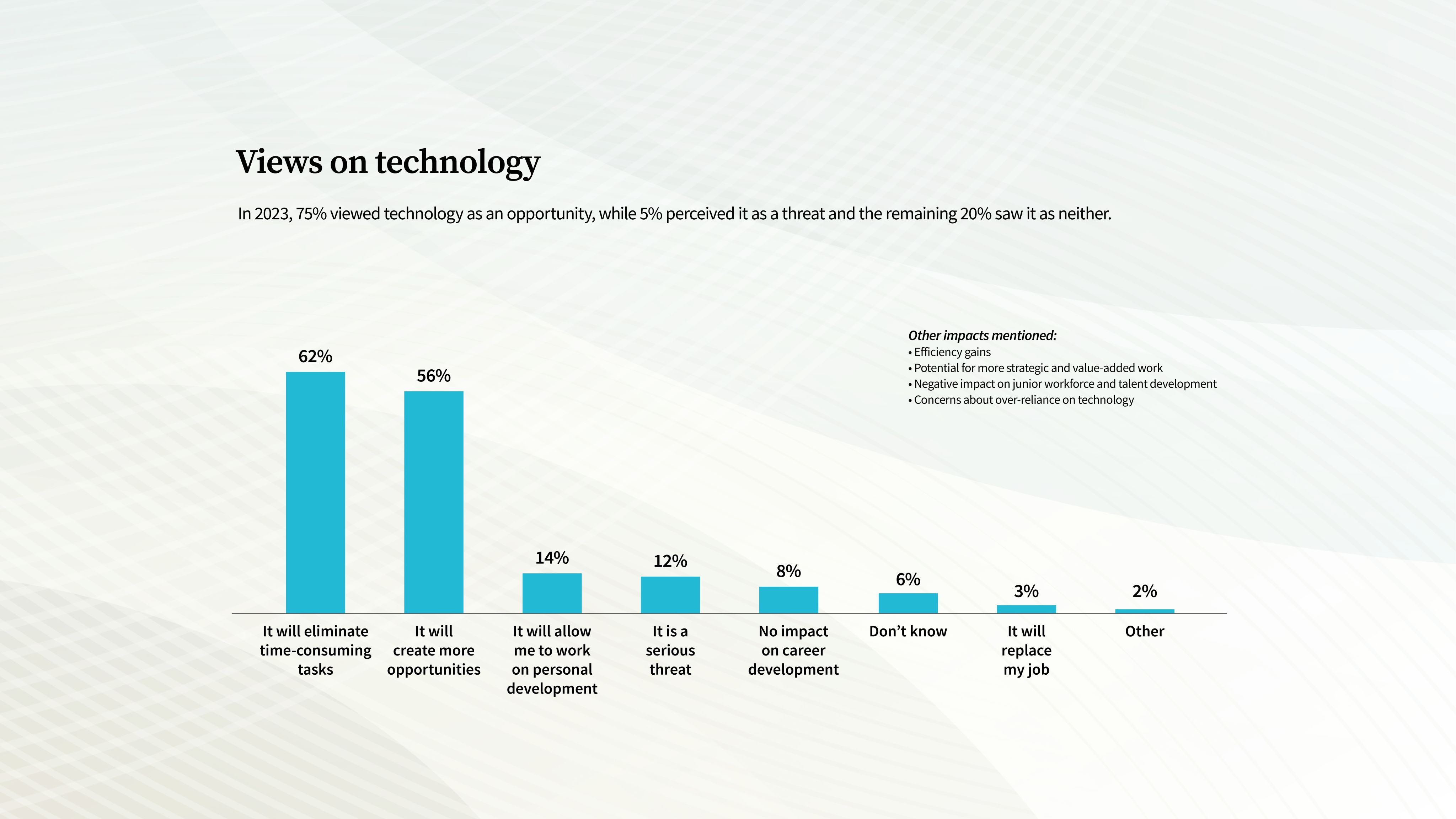
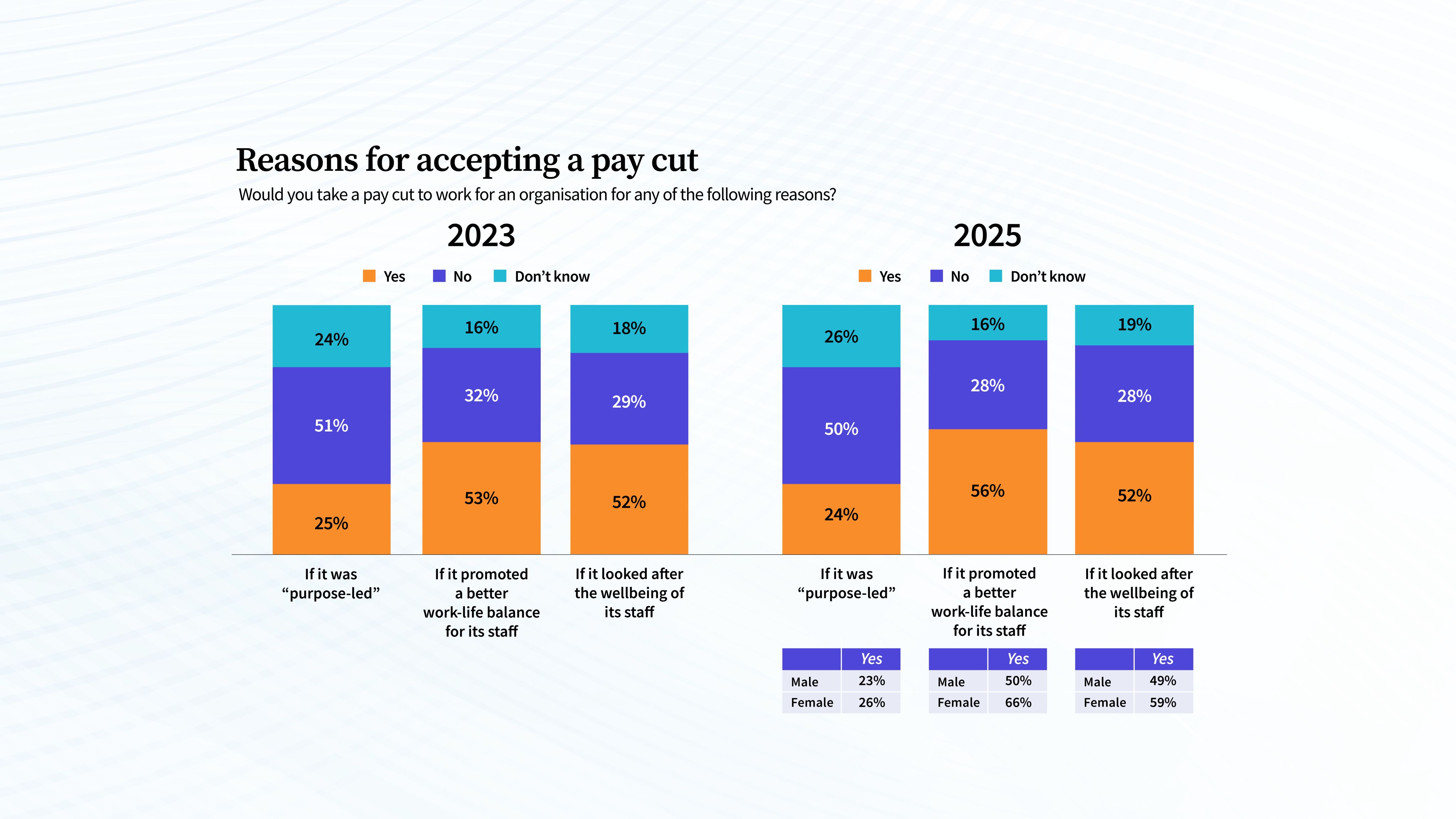
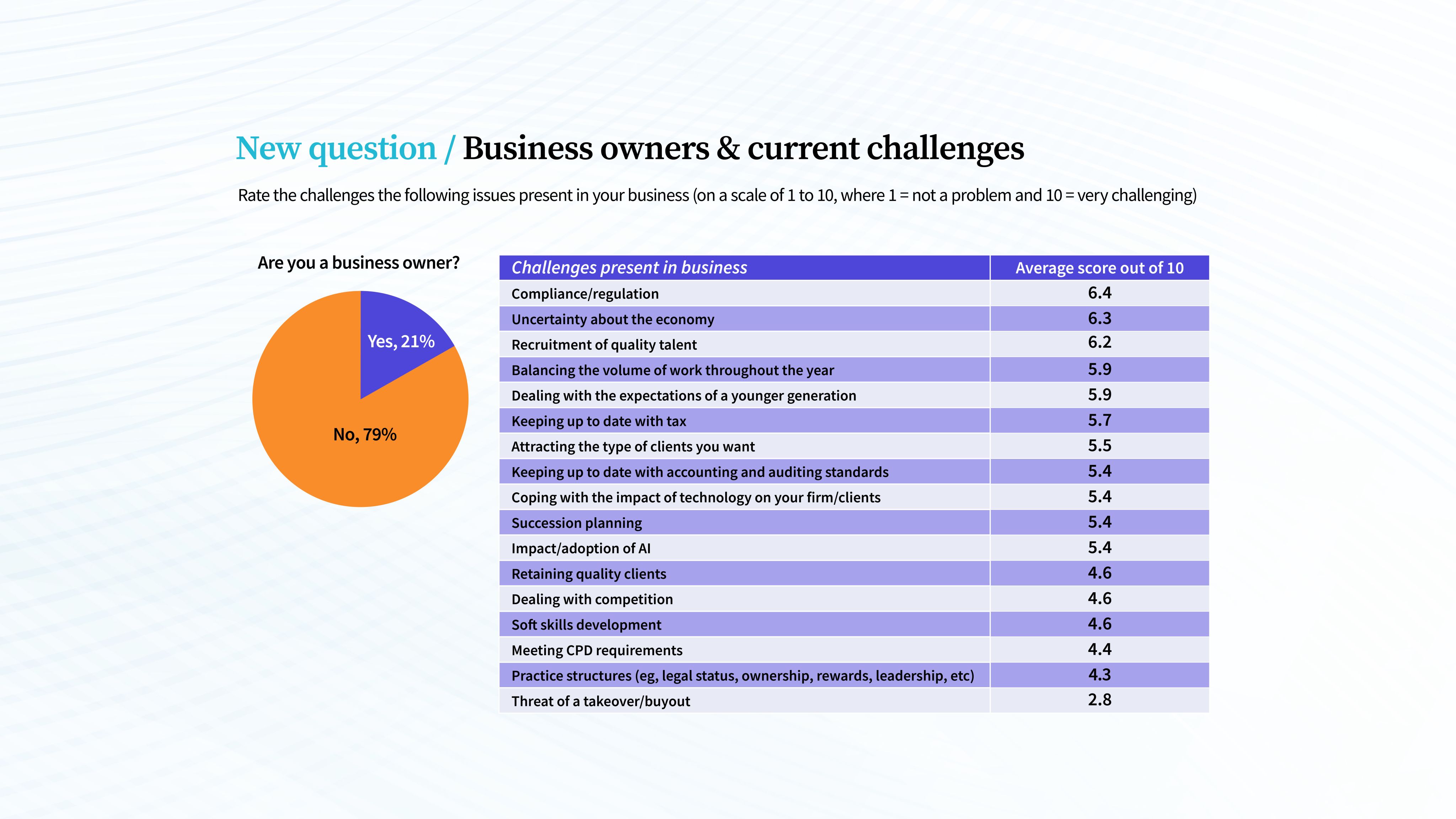
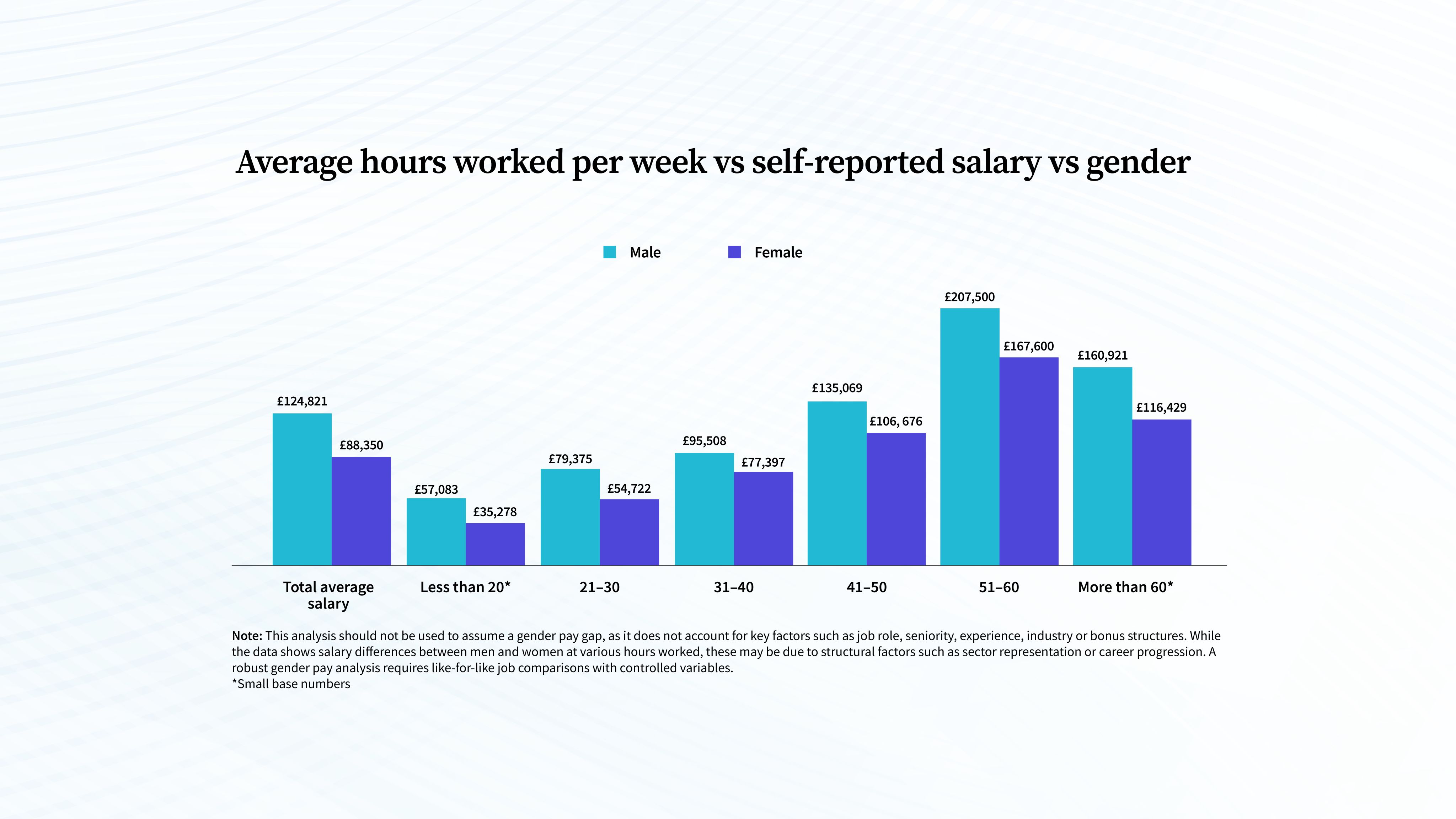
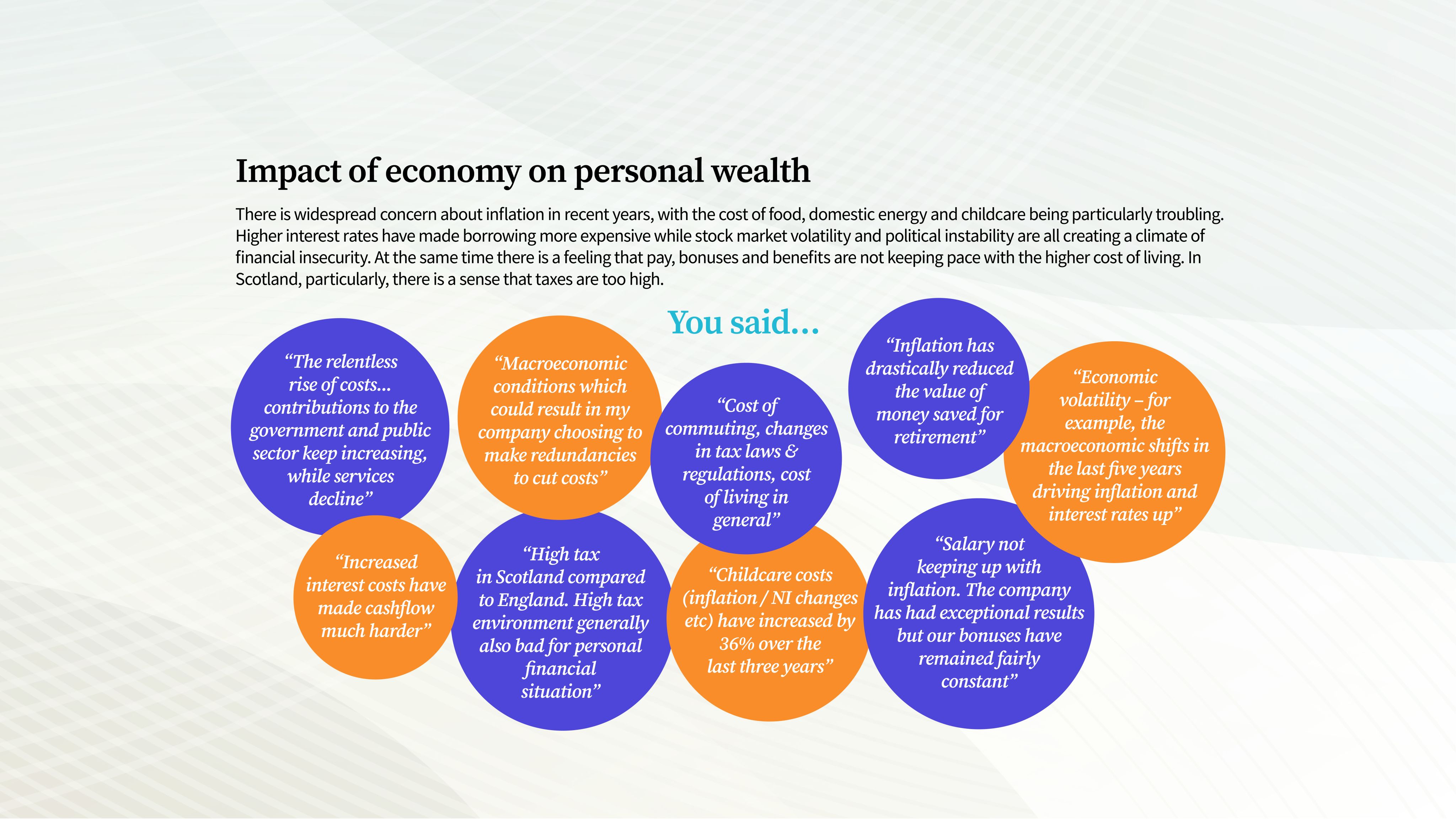
The new normal
Mark Lewis, Managing Director at Rutherford Cross, comments on results that suggest the sudden shifts of the previous survey may be here to stay
When Rutherford Cross was last involved in the ICAS careers survey in 2023, we saw the dial of member views and expectations shift significantly from those expressed pre-pandemic. So, since being asked to be involved again this year, we have eagerly anticipated the results to see whether those shifts have levelled out or continued on their trajectory of further change.
The results show that, on the whole, the sentiments of ICAS members in 2025 largely reflect those of two years earlier. But that in itself suggests those previous shifts in expectations are here to stay. In addition, although some of the changes are relatively small, they do signal that there have been some frustrations building over the past two years when compared with the “over-heated” market conditions of 2021 to 2023, when career opportunities were more plentiful.
Of particular note was a seven percentage point (7pt) drop in perceived career opportunities with current employers, coupled with a 3pt increase in members expecting to change role to continue their career advancement. With work-life balance once again topping career aims, it indicates that members are potentially not prepared to sacrifice this fundamental requirement in order to progress their careers at a faster rate.
Asked to name the main issues facing the profession in the next five years, it was unsurprising that 92% of members cited data, analytics and AI. There was also a significant drop in members regarding technology as creating more opportunities (75% in 2023 versus 56% in 2025), though only 15% considered it a serious threat or something that could replace their jobs.
Interestingly, the importance of CSR (listed in the chart as “citizenship and public interest”) and EDI dropped significantly, but our view is that this is because both are now much more embedded in overall organisational culture, rather than lacking importance per se.
From a work-life balance perspective, there seems to have been a small but noticeable improvement in conditions for members from 2023, with falls in weekend and holiday working as well as work-related stress. However, with employers gradually bringing employees back into the office, it will be interesting to see if this trend holds up, especially as the most satisfied members are either based full time at home or have a hybrid pattern with the majority of time at home.
Finally, it was noticeable that ICAS members are not immune to the financial pressures created by recent economic and geopolitical uncertainty, with many feeling that the value of real pay is in decline. Until interest rates start coming down in a meaningful way, with inflation remaining in check, it is perhaps difficult to see much change in these views.
Sound like the career for you? Learn more about how to become a CA







